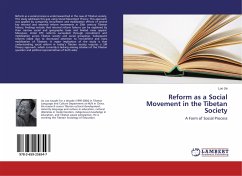Reform as a social process is underresearched in the case of Tibetan society. This study addresses this gap using Social Movement Theory. This approach was applied by comparing recruitment and mobilization efforts of several key internal and external reform movements in 20th century Tibetan history. Findings include that internal reform failures can be explained by their narrow social and geographic basis and limited mass appeal. Moreover, initial CPC reforms succeeded through recruitment and mobilization across Tibetan society and social groupings. Subsequent reforms failed due to decreased attention to recruitment and mass mobilization of Tibetans. A major implication of the study is that understanding social reform in today's Tibetan society requires a SM Theory approach, which currently is lacking among scholars of the Tibetan question and political representatives of both sides.








